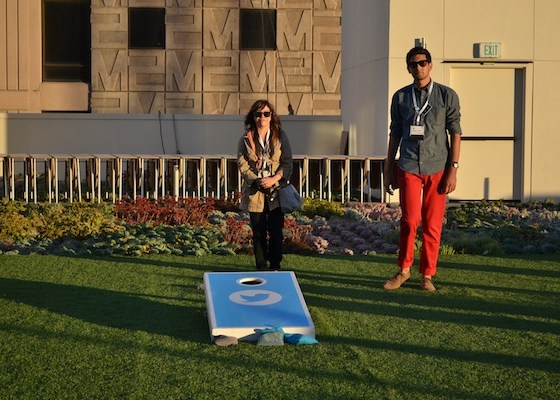1. Make a first impression before meeting in person.
Three of the four people I hired for my staff were people I first met digitally. They made a good digital impression on me so they had an advantage over everyone else. The fourth one I met in person, but he stood out to me because he followed-up digitally through social media. Reach out. Make a first impression. Engage with people you are interested in working with.
— Steve Buttry, Digital First Media
2. Don’t wait for someone to give you a job.
In today’s world, anyone can be a storyteller; you don’t have to wait for permission. If you can produce videos and stories that attract an audience, whether on YouTube, Tumblr, or through Twitter and Facebook, media companies will find you.
We have people looking on the Internet all the time. If we see something that’s quality, we notice the name. We reach out all the time to people who have produced videos, even if it’s just on their mobile phone, and it often leads to work.
—Tim Liotta, Director, Digital Content, The Weather Channel
3. Stay true to the foundation of journalism but embrace change.
I look for a sense of values. At the heart of any act of storytelling is the art of reporting. You need to get the story before you can tell it. I look for people who understand the primacy of reporting and also understand that reporting is hard. It means finding out facts that need to be told, that have a greater need for airing, and that are hard to get. To see the commitment to the act of reporting as the fundamental activity of the journalist.
What’s fascinating for me is to see people who have embraced how the industry is changing and are completely undaunted by that. Who see it as an opportunity in a lot of different ways to tell stories, to be journalists, to invent what they do in an industry that is trying to invent new and successful ways to tell stories. That’s the most exciting thing.
— Cameron Barr, Deputy National Editor, The Washington Post
4. Take time to develop your social presence.
Having a social media presence might have been surprising a few years ago, but it’s a given now. I sometimes ask people how digital they are and it now seems like a superfluous question because people are entirely digital, and they have to be to succeed in this industry.
— Cameron Barr, Deputy National Editor, The Washington Post
Often, before I even meet a student, I’ve found out everything I can about the person. Facebook, Twitter, Tumblr. Do they have a website? It takes two seconds to Google yourself. See what comes up and what impression it makes, and if it is not your best, do something about it.
I have 11,000 followers on Twitter. If you follow me, you don’t stand out at all. But if you engage with me, start commenting and start a conversation with me, I notice, and we start a relationship. It makes me think. I think that students should absolutely make that connection.
— Steve Buttry, Digital First Media
5. Break the rules.
Throw out the old rules of networking and applying — don’t send a hard copy of a resume. Don’t mail a paper and cover letter. Email links.
— Cameron Barr, Deputy National Editor, Washington Post
It’s absolutely OK to break rules. If you send me a hard copy resume in the U.S. mail with five outstanding clips, you’re like six steps behind the person who emailed me a link to a resume with digital work. I didn’t hire anyone who sent me a hard copy resume in the U.S. mail in the last two rounds of hiring people. There’s a bad first impression.
A girl once sent me a resume that was a Google map showing where she worked. I was ready to hire her right then.
— Steve Buttry, Digital First Media








You must be logged in to post a comment.